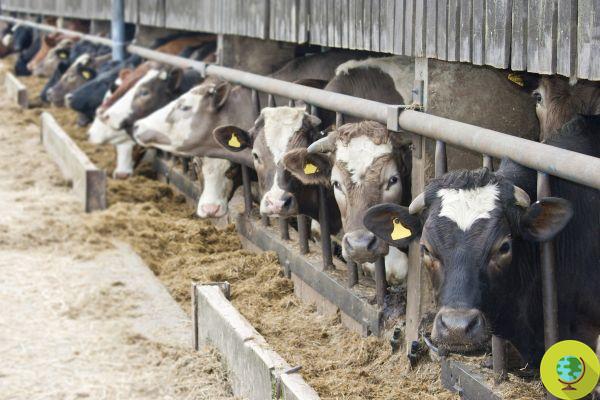
Decreasing meat and dairy consumption will reduce methane and allow forests to thrive. Scientists are appealing to the states, but also a warning that, by 2030, they declare that they have reached the 'peak of livestock' and then move on to reducing production to cope with the climate emergency.
Decreasing meat and dairy consumption will reduce methane and allow forests to thrive. Scientists are appealing to the states, but also a warning that, by 2030, they declare that they have reached the 'peak of livestock' and then move on to reducing production to cope with the climate emergency.
"To help reduce the risk of global temperature rise beyond 1,5 degrees Celsius or 2, - write the scientists - we ask high and middle-income countries to integrate measures into their commitments to comply with the Paris Agreement, from 2020 onwards ".
The first measure is to declare the peak of livestock, so that production does not continue to increase; the second is to identify the major sources of emissions in the livestock sector and set adequate reduction targets for production. Again, in the agricultural sector, when pastures are not needed or unsuitable for horticulture, take a natural approach to reuse land as a carbon source, restoring plant cover.
As we know, intensive farming, especially cattle and sheep farming, emits significant numbers of gases into the atmosphere. Forests are being destroyed to make room for animals and the crops they are fed on. Over 80% of agricultural land is used for livestock and this has a significant impact on climate change.
According to scientists, cutting down on meat and dairy and eating a mostly plant-based diet would free the land to be returned to the natural forest. This would be the best option currently available for storing large amounts of carbon.
If the livestock sector continued to operate normally, 2030% of the emissions balance would be attributable to livestock by 49. Since the first assessment report of the Intergovernmental Panel on Climate Change in 1990, the production of meat, milk and eggs has increased from 758 million tons to 1247 million tons in 2017, and is expected to increase further.
The continued growth of the livestock sector increases the risk of exceeding the emission limits established at the Paris Conference. For this reason, precisely in a detailed letter in the Lancet, they ask for concrete actions also in view of the United Nations climate summit in Madrid.
"The demand for food will increase enormously as our population expands to the 10 billion mark," said Matthew Betts at Oregon State University in the United States. "Reducing human demand for animal proteins would significantly slow down the global loss rate of forests, with enormous benefits for biodiversity and ecosystem services, as well as carbon storage."
We always reiterate it, replacing or limiting meat with vegetable proteins benefits our health and becomes a guarantee of longer life and a reduced risk of cardiovascular disease.
"We are fully aware that our calling requires large-scale change throughout society and is not something that can be achieved overnight or without challenges," the scientists comment.
Read also:
- Reduction in meat consumption by 19%: this is how the US saved the emissions of 39 million cars
- Meat consumption: hidden greenhouse gas emissions increase


























